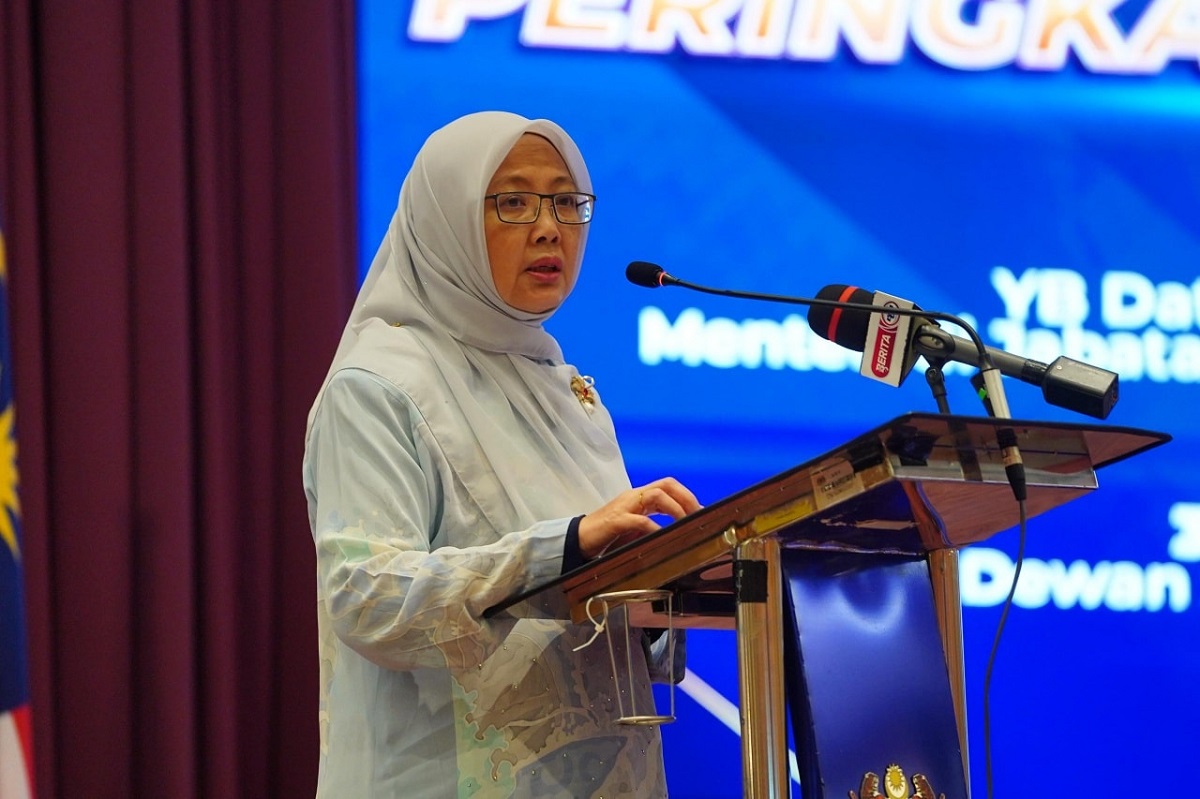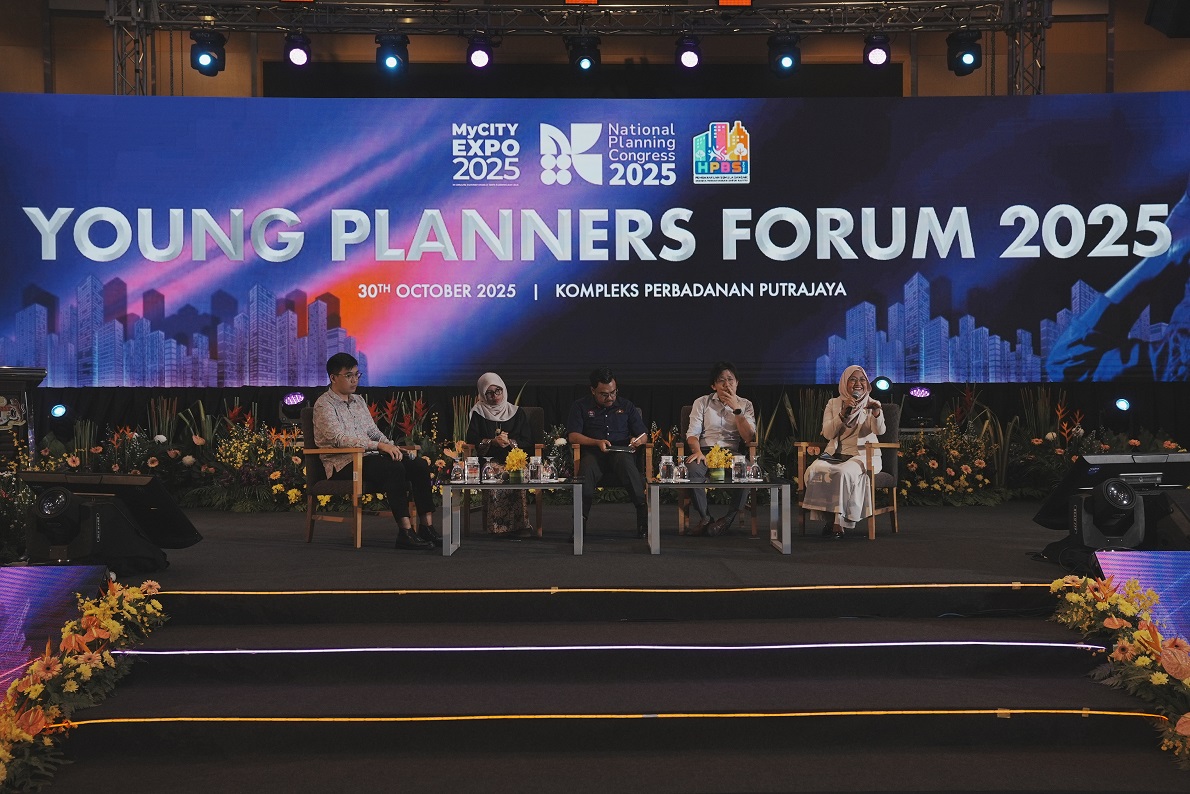- Nurul said many local issues stem from top-down planning methods that overlook on-the-ground realities.
PUTRAJAYA (Oct 30): Community voices must be better reflected in urban planning and policymaking to ensure cities develop in ways that truly serve people’s needs.
All-Party Parliamentary Group Malaysia for the Sustainable Development Goals (APPGM-SDG) Mapping Unit deputy director Nurul Syaza Mazelan said community voices are often missing from policymaking, especially in urban planning and sustainability initiatives.
“When we listen to communities, we often find something missing in the policy itself. Their voices are not reaching the higher levels of decision-making,” she said during the “Communities at the Heart—Young Planners Shaping Inclusive and Sustainable Urban Futures” session at the National Planning Congress (NPC) 2025 today, held at Kompleks Perbadanan Putrajaya.
She added that many local issues stem from top-down planning methods that overlook on-the-ground realities.
“As planners, we often design without truly understanding the voices of those living in the area—from the elderly to indigenous groups who are often left behind. We need to close this gap and ensure real engagement with grassroots communities,” she said.
Nurul also pointed out that Malaysia’s fragmented governance structure, divided between federal, state, and local levels, often causes confusion and inefficiency.
“Each level has its own plans and priorities, but they aren’t always connected. This fragmentation weakens implementation, and sometimes what’s planned at the top doesn’t match what communities actually need,” she said.
Local councils are the frontliners of sustainability
Iskandar Puteri City Council (MBIP) Sustainable Cities and Urban Wellbeing head Safwan Shaari said local governments are the frontliners of sustainability, as they work directly with communities where national policies take real effect.
He said local councils form the lowest tier of Malaysia’s three-level government system below the federal and state levels and are responsible for people’s everyday needs.
“We are the ones on the ground, engaging with residents and understanding their daily realities. That’s why local participation and awareness are key to building truly sustainable cities,” he said.
Safwan added that sustainability must strike a balance between economic, social, and environmental priorities, noting that most people tend to focus on profit while neglecting community wellbeing and environmental care.
“In MBIP, we put strong emphasis on the social pillar, especially community ownership. We’ve been engaging local communities early, listening to their concerns, and shaping our policies around them. Once people feel ownership of their neighbourhoods, that’s when real, lasting change happens,” he said.
Future planners must grasp carbon accountability
Socio-economic and business consultancy firm PEMANDU Associates Sdn Bhd sustainability strategist Wan Hidayat said future planners should understand carbon accountability, think in systems and master storytelling to stay relevant in sustainability work.
“If you’re involved in urban planning, you also need to account for the carbon footprint of your designs. Try experimenting with online carbon calculators. It’s a good way to understand the real impact of your projects,” he said during “Young Planners Forum” session.

He explained that systems thinking is crucial for tackling complex urban and environmental challenges: “It helps you see how everything is interconnected from greenhouse gas emissions to city planning decisions”.
Wan Hidayat also urged planners and young professionals to step outside their comfort zones and take part in broader sustainability conversations.
“What we’re trying to do is bring that conversation home, make it accessible, and create a platform for Malaysian youths and planners to exchange ideas on sustainability and climate action,” he said.
NPC 2025 is organised by the Malaysian Institute of Planners, with EdgeProp Malaysia as media partner. Held over three days from Oct 28–30, the event gathered around 800 participants including policymakers, urban planners, industry players, and community groups to promote dialogue and innovation in urban renewal, city planning, and the role of technology in shaping liveable cities.
Held in conjunction with the national celebration of World Town Planning Day, which also features MyCITY Expo 2025 until Oct 31, it was officiated by Deputy Prime Minister Datuk Seri Fadillah Yusof and attended by Housing and Local Government Minister Nga Kor Ming.
Themed “AI Meets Urban Planning,” the conference was officially closed today by Minister in the Prime Minister’s Department (Federal Territories) Datuk Seri Dr Zaliha Mustafa.
As Penang girds itself towards the last lap of its Penang2030 vision, check out how the residential segment is keeping pace in EdgeProp’s special report: PENANG Investing Towards 2030.







